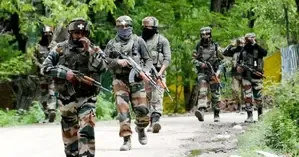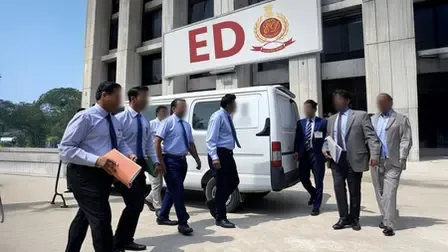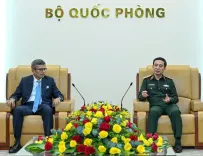AFSPA Extended in Manipur, Nagaland, and Arunachal for Six More Months

Synopsis
Key Takeaways
- AFSPA extended for 6 months in Manipur, Nagaland, Arunachal Pradesh.
- Effective from April 1, it covers several districts.
- Excludes specific police station areas in Manipur.
- Ethnic violence in Manipur has been ongoing since May 2023.
- Protests for withdrawal of AFSPA are ongoing in Manipur.
New Delhi, March 30 (NationPress) The Ministry of Home Affairs (MHA) has announced the extension of the Armed Forces (Special Powers) Act for an additional six months in selected regions of Manipur, Arunachal Pradesh, and Nagaland. This extension will take effect starting April 1, as reported by officials.
The AFSPA, which confers extensive powers to the armed forces in areas designated as disturbed, enables them to conduct searches, make arrests, and use lethal force if deemed necessary for the maintenance of public order. The extension on Sunday covers the whole state of Manipur, excluding zones governed by 13 police stations across five districts: Imphal West, Imphal East, Thoubal, Bishnupur, and Kakching. Manipur has faced severe ethnic violence between the majority Meitei and the minority Kuki-Zo-Hmar tribes since May 3, 2023, resulting in significant unrest.
The MHA's notification indicated that the Central government has reviewed the law and order situation in Manipur and, under the authority granted by Section 3 of the AFSPA, 1958, has opted to extend the legislation for another six months as of April 1.
Additionally, a separate notification from the MHA confirmed that the AFSPA has also been renewed in eight districts of Nagaland: Dimapur, Niuland, Chumoukedima, Mon, Kiphire, Noklak, Phek, and Peren, along with 21 police stations across five other districts: Kohima, Mokokchung, Longleng, Wokha, and Zunheboto. These areas will also be classified as ‘disturbed’ for a period of six months starting April 1.
Moreover, another MHA notification confirmed the extension of the AFSPA in the Tirap, Changlang, and Longding districts of Arunachal Pradesh, including areas under the jurisdiction of Namsai, Mahadevpur, and Chowkham police stations in Namsai district, which borders Assam. These areas will be classified as ‘disturbed’ for six months from April 1.
The government also assessed the law and order conditions in the regions of Nagaland and Arunachal Pradesh where the AFSPA has been extended.
Manipur has been under President's rule since February 13, following the resignation of Chief Minister N Biren Singh on February 9 amidst ethnic violence that has persisted for over 23 months.
Numerous organizations in Manipur, including the Manipuri Students’ Federation (MSF), Nupi Khunai (Yairipok), and the Meira Paibis, have been protesting, demanding the withdrawal of the AFSPA from the state. In October of the previous year, the Manipur government extended the AFSPA throughout the state, except for areas governed by 19 police stations across seven districts in the Imphal Valley, for another six months.
Meanwhile, Assam Chief Minister Himanta Biswa Sarma mentioned on Thursday that the MHA has lifted the AFSPA from the Dibrugarh district. However, the Act will still be applicable in Tinsukia, Sibsagar, and Charaideo districts. He emphasized the gradual reduction of the AFSPA's reach in Assam.
“Previously, the entire state was under AFSPA. The Centre has consistently decreased the areas where the Act is active. Today, the Union Home Ministry has decided to remove the ‘disturbed area’ designation from Dibrugarh, leaving only three districts subject to the AFSPA. Our goal is to further reduce this in the future,” the Chief Minister stated.
The AFSPA was initially enforced across Assam in 1990 amid a surge in insurgent activities led by the United Liberation Front of Asom (ULFA). Since then, it has been renewed every six months, with periodic evaluations leading to the gradual exclusion of specific areas based on the existing security situation.









